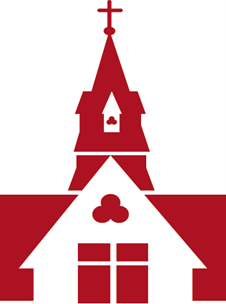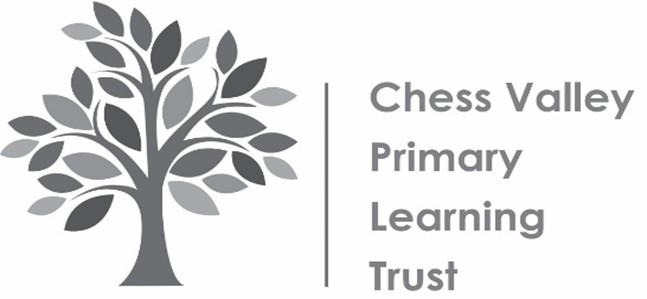RE Curriculum - Intent, Implementation & Impact
Intent
Religious education is unique in the curriculum in that it is neither a core subject nor a foundation subject. The 1988 Education Act states that: ‘Religious Education has equal standing in relation to core subjects of the National Curriculum in that it is compulsory for all registered pupils’.
The Church of England’s Statement of Entitlement for Church Schools describes how ‘religious education in a Church school should enable every child to flourish and to live life in all its fullness. (John 10:10). It will help educate for dignity and respect, encouraging all to live well together’.
At Christ Church Chorleywood C of E School, we want our pupils to develop their curiosity, understanding and respect for others, regardless of their creed and background. We want them to appreciate how faith can shape how people live, enabling them in turn to make informed choices and judgements about their own identity, and spiritual, moral, social and cultural development.
Our religious education curriculum is intrinsic to our school’s Christian vision: ‘what we nurture today, flourishes tomorrow’. We follow a rigorous and highly sequential religious education programme that develops the children’s religious literacy and prepares them for the opportunities, responsibilities and experiences of life in modern Britain.
What is religious literacy?
Religious literacy is the ability to hold a balanced and well-informed conversation about religion and beliefs, including those to which the individual does not personally belong.
Religious literacy can be viewed as a tripod stool. The legs represent the three areas of understanding: theology, sociology and philosophy. The religious education curriculum at Christ Church Chorleywood C of E School includes balanced study and discussion of each of these three areas.
Implementation
EYFS
RE will be taught flexibly according to the statutory requirements of the EYFS and to reflect the cohort of the class. Teachers identify opportunities for enrichment in line with the seasons and religious festivals, as well as promoting the children’s spiritual development in our beautiful local environment. Alongside all areas of the curriculum, RE is approached with flexibility, creativity, and adaptability so that our curriculum can and will include learning that is led by the children’s own interests, backgrounds and experiences.
Key Stage 1 and 2
In Key Stage 1 and Key Stage 2, RE is taught weekly in line with the Hertfordshire Agreed Syllabus for Religious Education, using a combination of Understanding Christianity and the Emmanuel Project resources. As a church school, two-thirds of our curriculum time for Religious Education is rooted in a deep understanding of Christianity as a living and diverse faith. The curriculum also facilitates a broad and balanced overview of the five other main world religions, plus humanism as an alternative worldview.
Understanding Christianity is a Diocesan-approved programme which helps children to acquire a thorough understanding and knowledge of the Christian faith, its key theological concepts, and how this informs the daily lives and practices of Christians around the world. Children at Christ Church Chorleywood C of E School will encounter the eight main theological concepts, as outlined by Understanding Christianity, to aid their understanding of the ‘big story’ of the Bible. Our curriculum provision is arranged to ensure that children revisit each of these concepts throughout their learning journey, in order to ensure a deep knowledge by the end of Key Stage Two.
The Emmanuel Project, originally created by the Diocese of St Edmundsbury and Ipswich, is another high-quality resource that we use at Christ Church Chorleywood C of E School to deliver rigorous and enjoyable learning about world faiths. Like Understanding Christianity, the Emmanuel Project is based on clear theological concepts; it encourages learners to explore religious texts and narratives, connect these with the lives of faith communities, and examine the impact that these have on an individual’s life.
At Christ Church Chorleywood C of E School, RE is a creative, experiential and reflective subject. The curriculum is planned and delivered in a variety of ways, ensuring that all children can access and participate in lessons, including those with SEN. Children are given time to think, talk about and consider the world around them and the beliefs of other people within our local community and the wider world. Interactive, practical activities within lessons encourage the children to discuss their own ideas and extend their understanding of difficult concepts and challenging questions. At the end of each unit of work, children are encouraged to form their own balanced, well-informed responses to key topic questions, drawing upon their learning and their own worldviews. They are also invited to reflect on their learning and draw connections between this and our school values.
Impact
Not only does RE promote religious literacy, but the subject is uniquely placed to help the children acquire disciplinary skills - evaluating ideas, expressing understanding, analysing texts and making links and connections between religious theory and community practice. These skills, nurtured in RE lessons, are all transferable into many parts of the curriculum and enable the pupils to flourish personally and academically.
Religious Education also plays a unique role in the spiritual, moral, social and cultural development of each child. The Church of England explains that character education encourages every child ‘to be as well equipped to be a prophet as to turn a profit’. Through both RE and our wider curriculum, we aim to promote not just compassion, but also courageous advocacy. Learning supports the children’s growth into active citizens, aware of their responsibilities to both others in the community and in the wider world.
Through RE lessons and daily collective worship, pupils at Christ Church Chorleywood C of E School will know that there is more than unites than divides people across communities, and how we live life is grounded in our values. Although the school lives out the Christian idea of the Fruit of the Spirit, our RE curriculum is designed to show the children that these are ideals shared and promoted by many religions, and even those who have secular worldviews, reflecting the wide range of beliefs in our school community.
Assessment
At Christ Church Chorleywood C of E School, we monitor the impact of and progress in RE using the following guidance: the Hertfordshire Agreed Syllabus for Religious Education’s end of key stage expectations, plus expected outcomes for each unit of work from the Emmanuel Project in conjunction with those from the Understanding Christianity resource. This assessment is recorded via internal assessment mechanisms and reported to parents via end of year reports.

